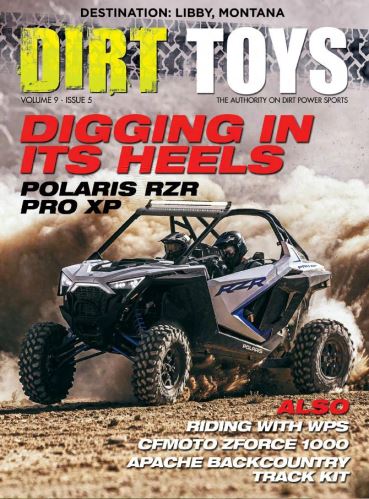The state law passed in 2013 expanding opportunities for riding certain types of all-terrain vehicles (ATVs) on certain roads in the state has proven so confusing that the Okanogan County commissioners, the Winthrop Marshal’s Office and the U.S. Forest Service have all issued permission for people to ride on some roads—and then retracted it.
Now Washington’s attorney general has weighed in, responding to a request from the Lincoln County prosecuting attorney to clarify the law.
In his April 17 opinion, Attorney General Bob Ferguson found that distinctions in the law allow county officials to designate roads with a speed limit of 35 miles per hour (mph) or less as suitable for a new class of “wheeled ATVs.” Wheeled ATVs have specified safety features and a special license.
While these provisions apply to wheeled ATVs, the law does not allow local officials to permit all types of off-road vehicles (ORVs) to use all roads and public highways, wrote Ferguson.
Lincoln County prosecuting attorney Jeffrey Barkdull asked the attorney general last fall if county officials’ authority to designate roads for ATVs overrides the 35-mph-speed-limit restriction.
Ferguson concluded that the provisions for different types of off-road vehicles, despite being in various sections of state law, are not in conflict.
Ferguson’s opinion reveals why the law has been so confounding. He reviews Washington’s legal definitions of “nonhighway vehicles,” “off-road vehicles,” “non-street-registered vehicles,” “all-terrain vehicles” and “wheeled all-terrain vehicles,” as well as different road classifications.
Ferguson notes that when the Legislature amended a previous ORV law, it left the definition of nonhighway vehicles in one law but moved the definition of off-road vehicles to a different law. While Ferguson says it isn’t clear why the lawmakers moved the term, he said “there is no evidence suggesting any legal significance.”
Ferguson says “nonhighway vehicles” is the overall class of recreational vehicles. Off-road vehicles and the newest category—wheeled all-terrain vehicles—are subsets.
Nevertheless, Ferguson said you don’t need the complete family tree of nonhighway vehicles to answer the basic questions (that is, whether some nonhighway vehicles are not ORVs, whether wheeled ATVs are a type of ORV and, most important, where people can ride the different types).
Laws regulating ORVs have become more specific over time, said Ferguson. For a while, ORVs could travel only on roads between a city with a population of 3,000 or less and an ORV recreation facility. That requirement was dropped in the 2013 law.
Ferguson’s summary of laws regulating off-road vehicles:
• Counties and cities can regulate the use of regular nonhighway vehicles on streets and roads as long as those rules are not less stringent than other parts of the law. Counties and cities can decide where nonhighway vehicles can be used, but that does not include public highways, because that would be less stringent.
• Counties and cities can designate roads, without regard for the speed limit, suitable for non-street-registered ORVs. These vehicles can use nonhighway roads, which the law defines as roads managed by a public agency, primitive roads and trails. These roads cannot have been paid for by the state’s motor-vehicle fund.
• Wheeled ATVs are different and are restricted to roads with speed limits of 35 mph or lower.
While potentially still confusing to those without a background in law, Ferguson’s opinion appears to support the distinctions made by the Okanogan County commissioners permitting wheeled ATVs to use roads with speed limits up to 35 mph.
Okanogan County’s ordinances are still under a legal challenge by the Methow Valley Citizens’ Council, which claims that the blanket opening of all roads under 35 mph violates another state law—the requirement to be sure that an action will not cause environmental harm.
That case is currently in the Washington Court of Appeals. A decision is expected in the next six months.
A list of Okanogan County roads open to wheeled ATVs is available atwww.okanogancounty.org. The county road department has been erecting signs showing where the vehicles are permitted and prohibited.

